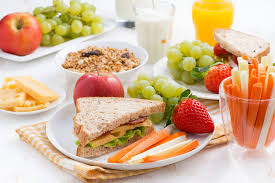
Following a low-calorie diet typically means consuming 1,000 to 1,500 calories a day. This creates a lack of calories that can lead to weight loss. This can be effective, but it takes a lot of discipline to work and be safe. Ideally, you should seek help from a registered nutritionist or physician to limit your calorie intake and loss of essential nutrients.
Benefits of a low-calorie diet
Scientists have been studying low-calorie diets since the 1980s and investigating claims that they may slow down the aging process. To lose weight, science is simple: consume fewer calories than you burn (through daily living and deliberate exercise), and you will lose weight.
The process of a low-calorie diet
Always look for a physical exam before starting a low-calorie diet, especially if you have health conditions such as high blood pressure or high blood cholesterol, it is a good idea, it is also important to know (and get help).
Low-calorie foods
Incompatible foods
-
• Refined carbohydrates (too much)
-
• Rich and fatty foods (too much)
-
• Sweet drinks
Compatible foods
-
Fruit
-
Vegetables
-
Lean protein
-
Low-fat or non-fat dairy products
-
Herbs and spices
Suggested timing for a low-calorie diet
You have the freedom to consume your calories whenever they are useful to you. But if you distribute your calories relatively evenly throughout the day, you may find it easier to cope with a low-calorie program.
Advantages and disadvantages of a low-calorie diet
Advantages
-
access
Low-calorie diets are not dependent on specific foods or supplements. -
Effectiveness
If followed carefully, this regimen is effective in general, especially in the short term. -
Safety
The safety of this diet also depends on its accuracy, so medical supervision is recommended. A doctor or nutritionist can assure you that you are getting the right combination of nutrients and enough calories to keep you safe and healthy.
Disadvantages
- Hunger
When you consume fewer calories than in the past, you get hungry. It can help if you eat slowly and chew your food thoroughly and enjoy eating each bite. Also, drink plenty of water. Your body needs fluids and water has no calories -
Practicality
Following a low-calorie diet, as recommended by your doctor, means proper planning and accurate tracking of the calories you consume. Unlike a very low-calorie diet (where you only eat meal replacements), you make decisions on a low-calorie diet. You are responsible for getting your food - what, when, and how much. -
Adequacy
For some people, a low-calorie diet is not recommended. That's why it's a good idea to talk to your doctor before starting this or any weight loss program. For example, women who are pregnant or breastfeeding should not follow a low-calorie diet.
"Low-calorie diet" is a broad term that can include a wide variety of foods and even a wide range of calories. But following this diet is not necessarily simple or easy. Do your research early and talk to your doctor or nutritionist to help you get started. This will increase your chances of success safely.




